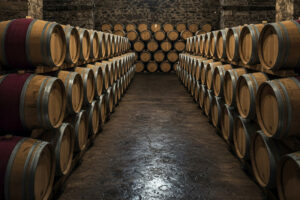A Chinese consumer goes to the supermarket to buy a bottle of wine for a special dinner. There are Australian, Chilean, Argentinian, Spanish, French, and in smaller quantities, Italian wines on the shelves. The French ones are easy to understand, as from Bordeaux to Champagne, the Chinese label that translates the denomination is clear and unmistakable. The same does not apply to Italian bottles of wine, though. The consumer buys two bottles of wine that have different names in Chinese characters, such as Hei Dawola and Hei Zhenzhu, not realizing that in both cases it is the same wine: Nero d’Avola.
The mission is to contribute to Italian excellence through correct translations, especially for the wine lovers in China, which according to forecasts will be the second largest wine market, behind the US, within the next five years. So, on March 13th, at the Polo of Intercultural Mediation and Communication of the University of Milan, in Milan, the Italian-Chinese Dictionary of Grapes and Wines will be presented. The project was created in collaboration with the Confucius Institute of the University, CARC (Contemporary Asia Research Center) and the Departments of Sciences of Linguistic Mediation and Intercultural Studies, Food Science, Nutrition and Environment and of Agricultural and Environmental Sciences of the University, under the patronage of the Crusca Academy.
The Institute explained that confusion in translations has a negative influence on consumer choices, as well as for wine experts and Chinese traders, and is due to the lack of standardization of Italian names of vines and wines. Therefore, the dictionary aims to definitively remedy this situation, and will also be at the center of a round table discussion of scholars and experts participating in the research project on wine in China, and the professional opportunities of today, practices and challenges in the realization of a Italian-Chinese bilingual dictionary, on denominations and definitions and on translation strategies for Chinese names.
Info: www.istitutoconfucio.unimi.it
Copyright © 2000/2026
Contatti: info@winenews.it
Seguici anche su Twitter: @WineNewsIt
Seguici anche su Facebook: @winenewsit
Questo articolo è tratto dall'archivio di WineNews - Tutti i diritti riservati - Copyright © 2000/2026






































































































































































































